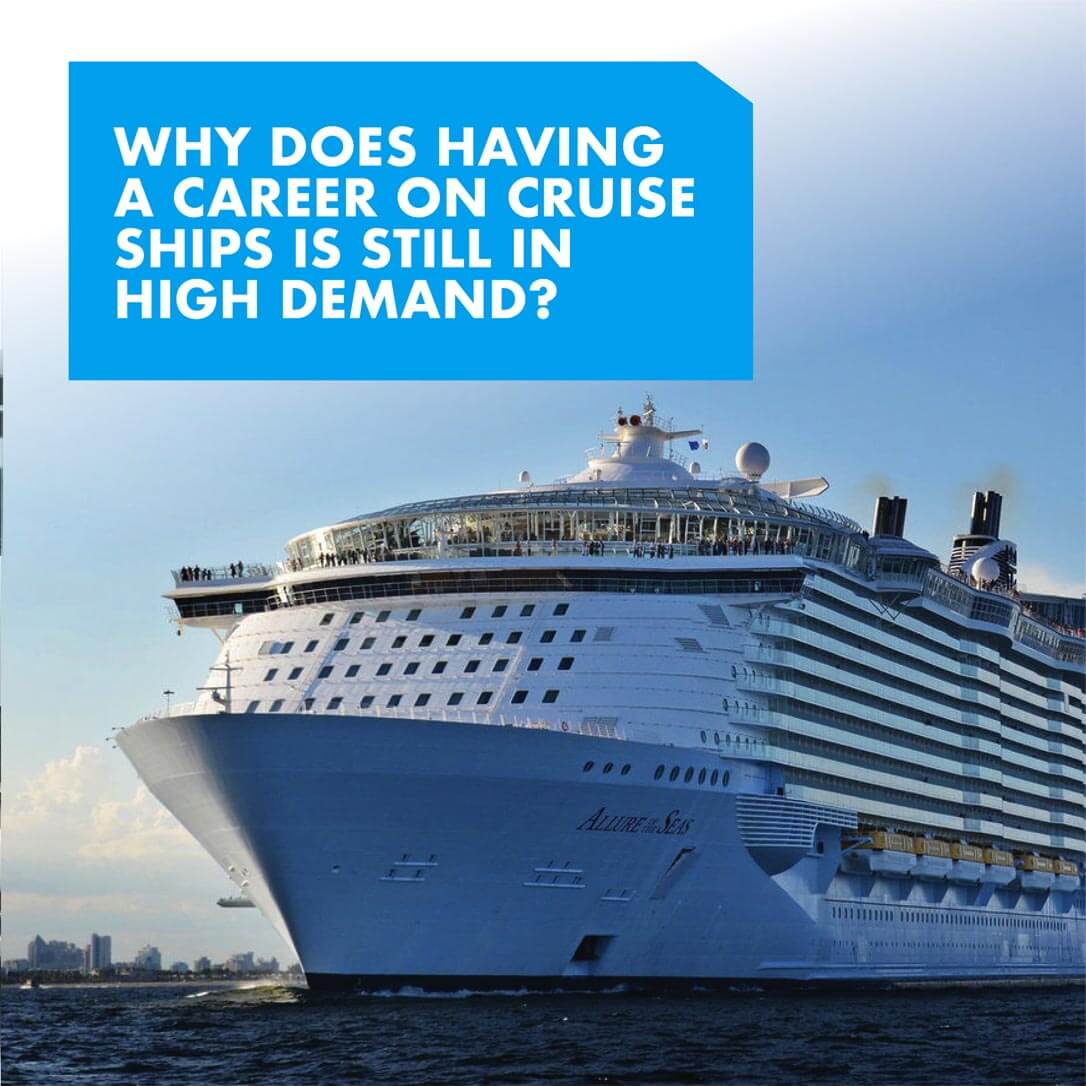
Why Does Having a Career on Cruise Ships is Still in High Demand?
Many types of travel have collapsed during the coronavirus pandemic, but no sector has been hit harder than shipping lanes. The cruise ship industry is in the spotlight after many cases of Covid-19 transmission were discovered on cruise ships in early 2020. Whether working on ships is still of interest to hoteliers in the future?
The Centers for Disease Control and Prevention (CDC) in the United States raised the warning level against cruise ship travel to its highest level in 2020. On its website, the CDC states that infectious disease outbreaks can occur on cruise ships because people spend close time with and with tourists from many countries. This CDC warning caused cruise line companies to delay their voyages until May 2021.
The cruise companies are still in the starting blocks, but they’re slightly more optimistic that they can hoist anchor again. Like the rest of the travel industry, they’re looking forward and pinning their hopes on the vaccines that have been developed and approved.
When Can Sail Back?
If they work as hoped, the ships could set sail in increasing numbers starting in spring or summer 2021. As quoted from dw.com, several of liners could be operational within a few weeks, some even within a couple of days. “Right now a lot is taking place in the background,” said industry advisor, university lecturer, and cruise analyst Thomas P. Illes in an interview with DW.
So that everything runs smoothly on board, the companies have developed stringent hygiene concepts. COVID-19 outbreaks like those that took place on numerous cruise liners at the beginning of the pandemic are absolute to be avoided. That’s why anyone wanting to board a cruise liner must be tested beforehand. The costs will be borne by a majority of cruise providers. There are to be strict hygiene protocols on board as well: masks will be obligatory for passengers and staff alike.
Whether the cruise industry can truly recover in 2021 will depend above all on the effectiveness of vaccination. Until now, financial backers are still on board, because they know how profitable the cruise business is under normal circumstances.
The Advantages
For hoteliers, working on a cruise ship is an attractive option that you can achieve. Moreover, this industry still has prospects for the next five years after the pandemic ends. These are the advantages when you work on a cruise line:
- Income
Working on cruise ships has a relatively higher income when compared to other hotel sectors on land. There are many choices when you choose to work on a cruise ship, from captains, engineer chefs, waitresses, entertainers, to doctors. Cruise crew range in salary between $ 600 and more than 8,000 depending on the occupation.
The company provides facilities for the crew who work on the ship, from accommodation to food. This is what allows the crew to save their income while working on the ship.
- Multicultural crew
While working on a cruise ship, you will meet crews from various countries. This is an opportunity for you to make friends with different backgrounds and cultures. You can also upgrade your foreign language skills while working on a cruise ship.
According to the cruisecritic.com site, Indonesians, Filipinos, Indians, and Malaysians have an excellent reputation in the tourism and hospitality industry. Indonesians are known for their warm and helpful attitude.
- Visiting various countries
Cruise ships have routes to anchor to several countries. Passengers can choose to stay on the ship or take a walk around the city for a specified time. Even though you can stop by in various countries, as a crew you still have responsibility for your job.
- Working hours
Cruise crews usually have work contracts for two to nine months on the sea. They then got 6-8 weeks off before returning to sail. During sailing, the crew usually works far longer than office hours.
- Promotion
Most crew members are new to starting positions. They have received training first before working on the ship. But ambitious cruise ship employees can move up the ranks. Staff members are encouraged to start regular training courses and apply for promotions.
About SGU
SWISS GERMAN UNIVERSITY (SGU) is an international university in Indonesia, was established in 2000 as a joint effort between Indonesia, Germany, Switzerland, and Austria. We are the pioneer in offering international curricula in Indonesia.
Qualified students can graduate with a Double Degree from Indonesia and Germany, which SGU provides in cooperation with partner universities; surely a valuable tool for your future careers. Ever since its establishment, SGU has been dedicated to delivering quality education in line with international standards and aims to develop skilled professionals who meet the demands of the industry. To achieve its objectives, SGU offers quality-oriented learning through 12 Bachelor’s Degree Programs and 4 Master’s Degree Programs ranging from Engineering, Information Technology, and Business to Life Sciences and Social Sciences. Furthermore, with small class sizes, and with English as the medium of instruction, you can look forward to pursuing your tertiary education and degree with full confidence.
Back
